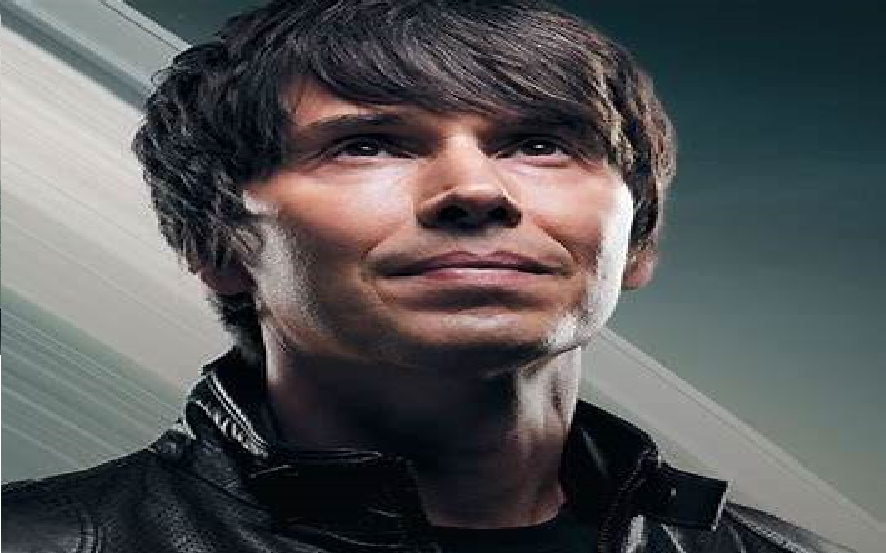Professor Brian Cox, a physicist and science communicator known worldwide, has continued to make waves in 2025 with a blend of public outreach, record-breaking tours, new media ventures, and educational initiatives. As someone who bridges the gap between the esoteric world of particle physics and the general public’s curiosity about the cosmos, Cox remains a compelling figure in science communication. Below is a roundup of his latest ventures, views, and impact.
1. Record-Breaking Science Tours & Public Reach
One of Cox’s standout recent achievements is breaking his own Guinness World Record — yet again — for the most tickets sold for a science tour. Guinness World Records+1
- Between August 2022 and May 2025, his global tour “Horizons: A 21st Century Space Odyssey” sold 369,297 tickets, securing the record for the fourth time.
- At a ceremony at New York City’s Town Hall, Cox was presented with a Guinness certificate, reaffirming his unique success at engaging mass audiences in science.
- The tour combines immersive visuals, music, and narrative with physics and cosmology themes—thus appealing to both science enthusiasts and general audiences.
This continued success underlines Cox’s ability to turn hard science into entertainment, and shows there is still large demand for scientifically serious, yet inspiring, public events.
2. New Podcast: Engaging in Live Science Conversations
In September 2025, Cox launched a new live-studio science podcast, where he and a panel of experts address pressing questions such as “Can we cure cancer?”, “How to survive climate change?”, and the challenges (and promises) of artificial intelligence.
This is a significant direction for him because:
- It leverages the medium of podcasting to create more interactive, conversational science content.
- It allows audience questions and real-time engagement with complicated topics (not just passive learning).
- It expands his reach beyond tours and TV — into a format many younger or digitally oriented listeners prefer.
3. Speaking on Quantum, Black Holes & Cybersecurity
Cox continues to position himself at the frontier of physics and technology by tying deep scientific questions to real-world domains:
- He is slated to deliver a keynote at Infosecurity Europe 2025 (June 3, 2025, London), where he will explore black holes, quantum mechanics, and the future of cybersecurity.
- His talk is set to address how black holes store information, how quantum computing could transform digital security, and the interplay between foundational physics and technological systems.
- Cox has been quoted saying, “We are on the cusp of a breakthrough as we see [quantum] principles being applied to computing in ways that could transform the digital world.”
These efforts show Cox is not content to be a “popularizer of science” alone; he is engaging with how fundamental physics might influence the next generation of technology.
4. Inspiring the Next Generation: Return to Oldham & STEM Outreach
In July 2025, Cox made a high-profile return to Oldham, the town where he grew up, to inspire students and educators. oldham.gov.uk
- He visited his old primary school, St Matthew’s, and delivered a “virtual tour of the galaxy” to pupils, sparking excitement about astronomy and physics.
- Over two days, he held assemblies at multiple primary schools, answered questions from curious children about black holes, time travel, and life beyond Earth.
- He also engaged with business and civic leaders, urging them to support STEM (science, technology, engineering, mathematics) initiatives. He initiated a “365-day challenge” to involve local firms in backing science education.
- Reflecting on his journey, Cox remarked: “When I was born here … no-one had walked on the moon — and now we’re building rockets all the time. In 20 or 30 years’ time, I’m guessing some of you will be going into space.”
This homecoming tour underscores how Cox sees education and local outreach as core to his mission — not just global stardom.
5. New Television Work: Solar System (2024) & Ongoing Media Presence
Cox continues to expand his media portfolio:
- In late 2024, he presented “Solar System”, a BBC documentary series that explores the planets, the hidden realms between them, storm and ice worlds, and oddball celestial bodies.
- This reinforces a continuity in his broadcast work (following Wonders of the Universe and The Planets) of making complex astronomy digestible.
- He is also active on social media. On X (formerly Twitter), he has made predictions such as estimating when Voyager 1 will reach one light-day distance from Earth (November 18, 2026).
By maintaining a consistent media presence, Cox ensures his voice remains part of public conversation about science, space, and the future.
6. Public Views, Philosophical Reflections & Critiques
Throughout 2025, Cox has also shared provocative opinions and reflections that go beyond pure science:
- He has discussed the rarity of intelligent life, saying that while microbial life might be common in the cosmos, “things like us may be extremely rare.”
- In a viral appearance on The Late Show with Stephen Colbert, he described human existence against cosmic scale: “It’s a remarkable thing to be a human being.”
- In his Infosecurity keynote planning, he bridges questions of quantum physics and cybersecurity — signaling his conviction that fundamental physics could reshape the technology foundations of society. I
Cox’s ability to combine hard science with philosophical wonder helps distinguish him from many popular science figures. He doesn’t shy away from the mystery, uncertainty, or societal implications.
7. Challenges & Critiques: The Limits of Popular Science
But Cox’s prominence also raises some challenges, and it’s important to view them with nuance:
- Translating advanced physics to mass audiences always involves simplification, and some scientists caution that deeper subtleties may be lost.
- There is potential tension in presenting speculative ideas (e.g. quantum information in black holes) without overstating their maturity or consensus.
- Maintaining authenticity in public engagement while operating in large spectacle tours can invite criticism that the show overshadows science.
Cox seems aware of this tension: his record-breaking tours and media projects reflect an ambition to reach many, yet he also invests in grassroots educational outreach and real dialogue (e.g. his live podcast). That balance will likely define how his legacy is judged.
8. What to Watch Next (2025 & Beyond)
Looking ahead, some key questions and developments to monitor:
- Infosecurity Keynote (June 2025)
How his talk on black holes and quantum computing will influence thinking in cybersecurity and tech circles — whether his perspectives will offer new frameworks. - Growth of the Podcast
If his live science podcast finds an audience, it could broaden his reach, attract new voices, and flexibly address rapidly evolving topics (AI, climate, pandemics). - Future Tours & Record Keeping
Will Cox continue to push boundaries in how science is presented live? Can he sustain audience interest in new scientific frontiers? - Educational & Institutional Impact
His local visits (e.g. to Oldham) suggest he’s not only a touring star but also a mentor. Long-term impact on STEM education in disadvantaged areas could define a more tangible legacy.
Conclusion
In 2025, Professor Brian Cox remains one of science’s most visible public figures, actively pushing the boundaries of what it means to popularize and engage with physics. From smashing attendance records and entering the podcast world, to returning to his roots and addressing quantum security, Cox continues to straddle the lines between deep theory, public education, and media spectacle.
What makes him especially compelling is that he doesn’t shy from the profound, the uncertain, or the philosophical. He invites awe, curiosity, and sometimes discomfort — and in doing so, he draws people into thinking about the universe not as distant abstraction, but as a source of wonder that belongs to all of us.






